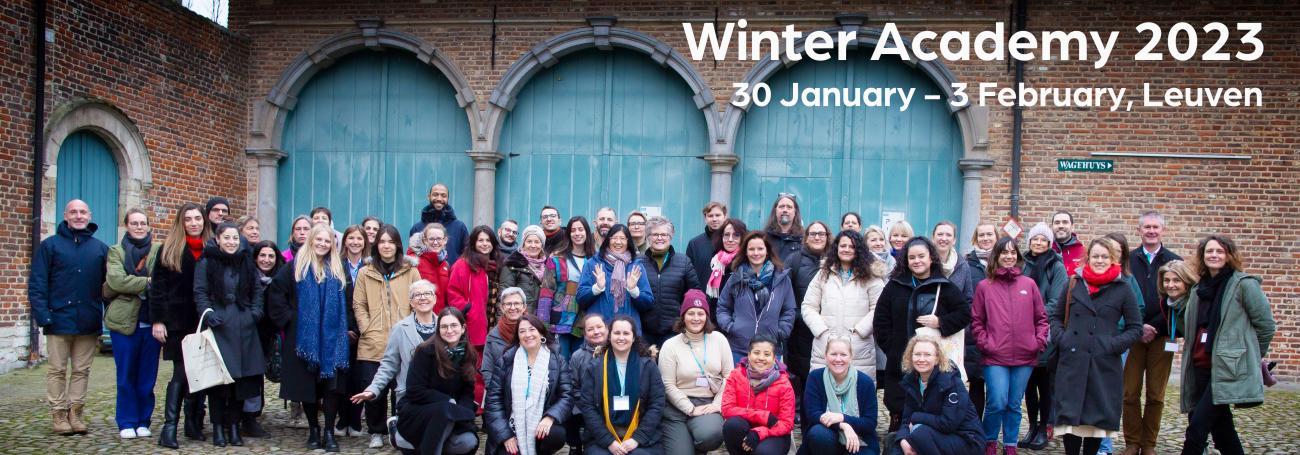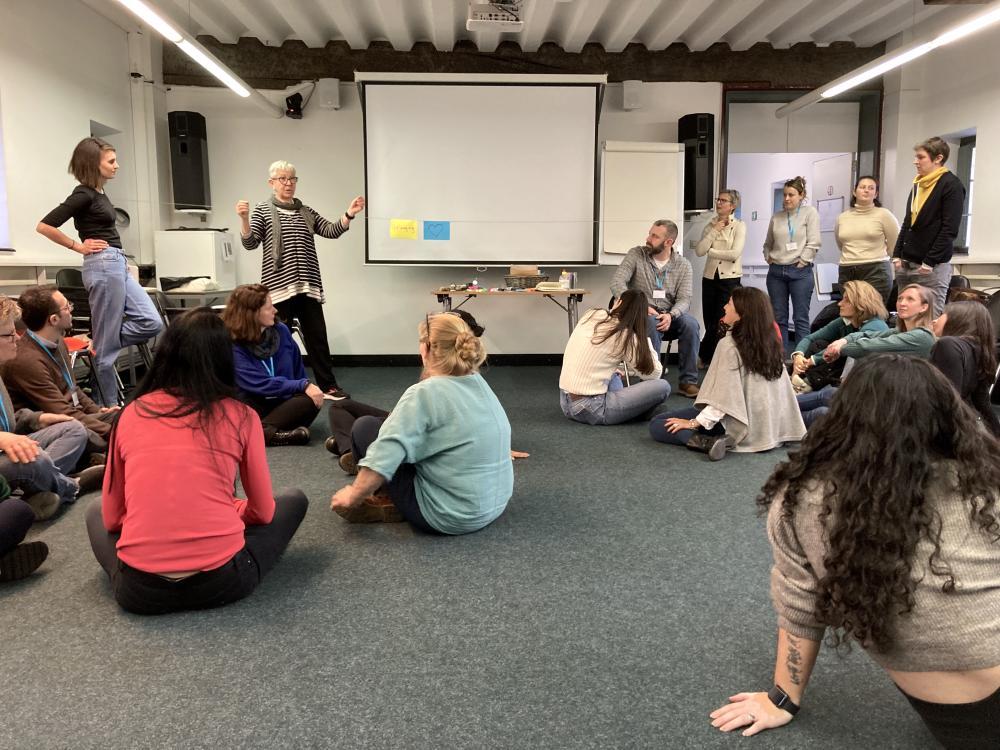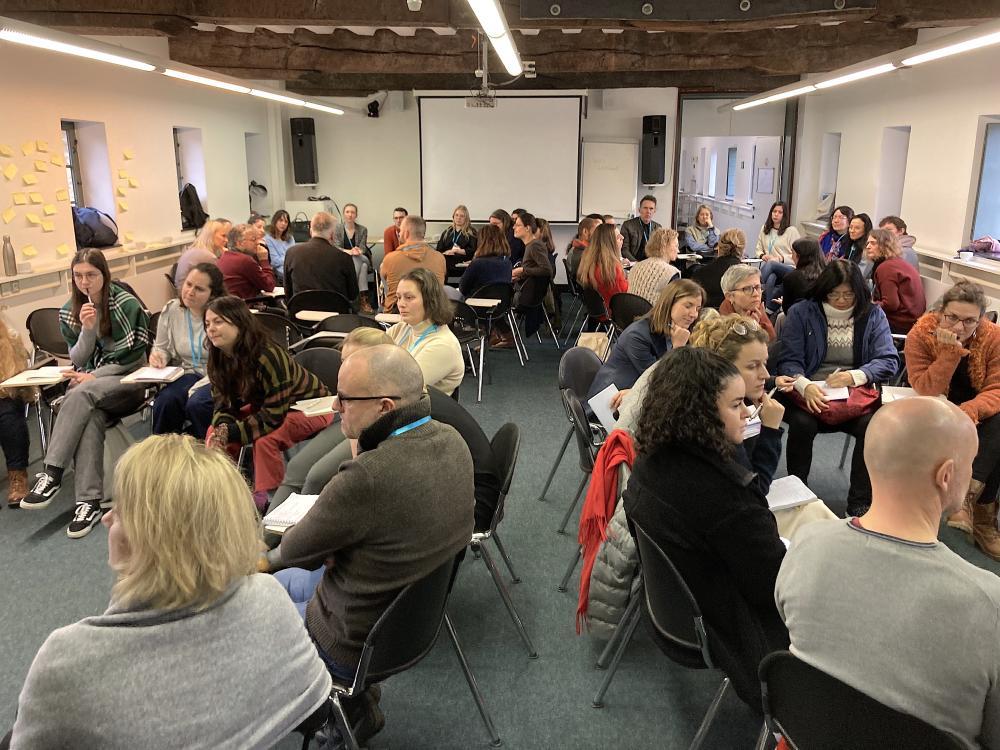
From January 30th to February 3rd, 2023, the European Forum for Restorative Justice (EFRJ) organised the very first Winter Academy in Leuven, Belgium. It was a week filled with inspiring workshops, field trips and encounters among 45 participants from 14 different countries.
Three practice-oriented courses were included:
- ‘Sensitive & Complex Cases in Restorative Justice: Domestic Abuse’ trained practitioners to handle complex domestic abuse cases restoratively, with a focus on prioritising victims’ needs. It incorporated research and victim experiences to inform the restorative process and it was led by Tim Chapman and Anna Halonen.
- ‘Victims' Needs and Restorative Justice: Good Practices and Safeguards’ focused on enhancing the skills of professionals working directly with crime victims or involved in the practical implementation of victims’ rights. Led by Peter Crory and Lisa Walters, the course aimed to deepen participants’ understanding of how restorative justice meets the diverse needs of victims and to provide guidance on improving assessment, referral and access to restorative justice services.
- ‘Restorative Approaches for Young People: In Education and Institutions’ provided participants with insights and strategies for transforming relationships and managing conflicts, bullying, challenging behaviours and disruption in educational and youth settings. Led by Dr Belinda Hopkins and Hanne Dehertog, the course emphasised the importance of restorative and emotionally literate approaches in promoting positive outcomes for young people.
We will now hear from three individuals who will share their reflections on the Winter Academy:
- Hanne Dehertog, trainer from Arktos one of the trainers at the Winter Academy,
- Ellen Valkenborgs, a mediator from Alba, who was a participant and
- Elena Lindholm Belloso, an EFRJ intern.
The articles of Hanne Dehertog and Ellen Valkenborgs were published originally in Dutch in the March 2023 Newsflash of the Leuven Restorative City network. Here we provide the first English translation of these texts. This is the first publication of Elena Lindholm Belloso's reflection.
Their insights provide valuable perspectives on the event.



